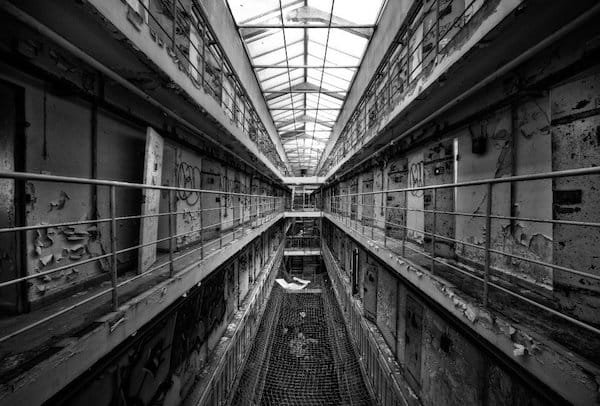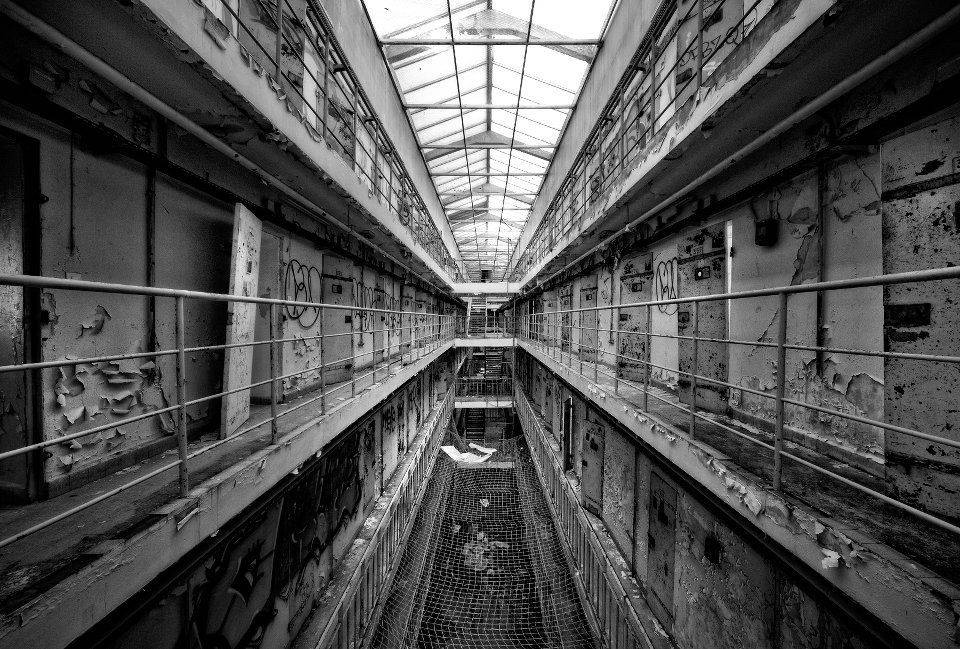While virtually no one in Europe would dispute the failure of drug wars, the EU stays away from the driving seat of international change.
In the context of global drugs policy, Europe is often perceived as a liberal continent: several countries have taken the lead in controversial approaches such as harm reduction, as well as innovative drug-political solutions like ‘commissions for the dissuasion of drug abuse’ in Portugal, coffee shops in the Netherlands, and heroin-assisted treatment in Switzerland. However, the most recent innovations have come on the other side of the Atlantic. Bolivia was the first country in the world to withdraw from the UN Single Convention on Drugs in 2011, deeming it contrary to the (new) constitutional right to traditional uses of the coca leaf. In 2013 Uruguay became the first country to legalize marijuana for recreational use, and is now experimenting with an innovative regulation system. In the USA, a growing number of states are legalizing cannabis, for medical and recreational purposes. The presidents of Colombia, Costa Rica, Guatemala and Mexico have put the issue of reforming the international drug prohibition regime on the agenda of the UN General Assembly Special Session (UNGASS) in 2016. Where is Europe amidst these upheavals, and what can we expect from the EU in the debate revolving around UNGASS?
Diverging Trends in Europe
The past ten to fifteen years of developments in the drug policies of European countries show two diverging trends: On the one hand drug use has increasingly become a public health and social issue, rather than a crime problem. On the other hand drug trafficking is increasingly seen as ‘organized crime’, to be countered by harsher punishments and more police cooperation. The integration of drug use and possession into broader health and social policy and the amalgamation of drug smuggling as security policy have led to predictions that drugs policy as a political field in its own right is about to disappear in Europe.[1] EU’s official policy on drugs[2] is based on the principle of an equal emphasis on supply and demand reduction of drugs – meaning a balance between police and punishment on the one side, and prevention, treatment and harm reduction on the other. As drugs policy is subject to the principle of subsidiarity, the EU’s role and added value is reduced to one of coordination, international cooperation, research, monitoring and evaluation.Although the EU has intended to harmonize member-state policies and legislation on drugs, researchers disagree of whether EU-countries’ drugs policies have actually converged.[3] The establishment of the European Monitoring Centre on Drugs and Drug Addiction (EMCDDA) in 1993 brought with it harmonization of data collection at the European level, facilitating comparative and cross-country research. However, there have also been several parallel trends in European countries that have not necessarily been spurred by the EU.

Decriminalization and Alternatives to Incarceration
In Europe, substance use offences are normally subject to administrative sanctions or lenient penalties such as fines, warnings, suspended processes or suspended prison sentences.[4] Moreover, several European countries have in recent years ‘decriminalized’ the possession of small amounts of drugs, whether by changing the legal status of the offence (criminal/ non-criminal), the category of the drug (when the category determines the penalty) or the size or amount of the penalty available.[5] This trend towards decriminalization in Europe is mainly of three types: formal procedural law decriminalization; de facto and informal practices of not enforcing law; and substantive law decriminalization.[6] It has also become gradually more common in Europe to divert drug users from the criminal justice system through alternative measures that substitute for penal prosecution and incarceration.[7] Such measures can be applied at various points: the moment of arrest, before preventive prison, in sentencing, and when deciding on the release of an inmate.[8] Generally, alternatives are more commonly applied for problem drug users and addicted users than for occasional users, reflecting the view of addiction as a disease to be treated. Treatment is not merely an alternative for people who have committed drugs offences, but also for users who have committed acquisitive crimes. The suspension of prosecution or sentence usually depends on successful completion of treatment. Sometimes treatment comes in addition to, rather than instead of, punishment. In some cases treatment is court ordered; in others, the user’s consent is required.[7:1] Moreover, many European countries have implemented drugs court models (Belgium, England, Ireland, Northern Ireland, Norway, Scotland and Wales). Since 2001, Portugal has operated with a comprehensive system of ‘commissions for the dissuasion of drug abuse’, through which drug users are channelled instead of being processed through the criminal justice system.[9]
Drug Trafficking as a (Supra)National Security Matter
While drug use and addiction have been treated in incrementally lenient ways as regards criminal justice, the securitization of drug trafficking as quintessential organized crime seems to have spurred stronger reactions from EU politicians. Already in 1999 heads of states at the Tampere European Council encouraged EU member states to enact additional legal provisions to combat drug trafficking. In the period 1999–2004 six member states (Denmark, Estonia, Greece, Ireland, Lithuania and UK) passed laws increasing the penalties for certain drug-trafficking offences. In 2003 drug trafficking was defined as a pivotal threat to the security and stability of the EU as the main activity of organized crime, and its potential links to terrorism.[10] In 2004 the Council of the European Union passed a framework decision[11] that called for stiffer penalties for trafficking in illicit drugs, following the 1999 Tampere European Council Conclusions. After the framework decision, four more countries (Austria, Netherlands, Poland and Slovakia) passed laws aimed at bringing trafficking penalties in accordance with the provision.[4:1] Although large discrepancies still exist in EU countries’ legal frameworks on the matter of drug trafficking, organized crime has been a driver for harmonization of criminal law, as well as an important amplifier of cross-border police and judicial cooperation. For example, the adoption of the European Arrest Warrant in 2002, meaning that arrest warrants are valid throughout the EU member states, Norway, Switzerland and Iceland, is seen as a landmark in international police cooperation. Europol’s supranational role and mandate seems to be ever-expanding.
The EU’s International Drugs Policy Role
Not only has the EU contributed to international coordination and cooperation against drug trafficking at the European level, it has also increasingly engaged non-EU countries in its ‘fight against drugs’. This has included pressure on the EU’s eastern and southern neighbours to adopt its legislative framework, including the above-mentioned Council framework decision on minimum penalties, and a stepping up of police and judicial cooperation against drug trafficking, organized crime and terrorism. In particular, the EU has sought to include non-EU countries in protecting its borders from such ‘security threats’.The EU has explicitly declared the objective of increasing its role and significance in international drug policy, in international forums and in third countries.[12] However, to have a clear voice in international relations, the EU needs to front matters with a certain consensus among its 28 member states. Challenges arise because of the sizable variation in drug-policy positions, with the Netherlands and Sweden as the two extremes. For example, two EU countries withdrew their support to the use of the term ‘harm reduction’ in the final version of the UN Political Declaration and Action Plan on Drugs in 2010.[12:1] The EU’s position on drugs policy has increasingly come to focus on promoting an ‘evidence-based approach’ through facilitating and supporting research. Public health principles have led to an emphasis on prevention, treatment and social reintegration. Despite internal disputes, the EU is the only region in the world which explicitly states risk and harm reduction as strategic objectives of its drugs policy. Police cooperation and border management are, however, among the means on which the member states find it easiest to agree – which is probably also an important reason for why these measures have dominated the EU’s approach to drug policy – or, rather, security policy.According to EMCDDA director Wolfgang Götz, the EU has an essential role to play at UNGASS 2016, to ‘bring ‘more Europe’ into world drugs policy’.[13] Apart from harm reduction, research and human rights, issues which are already quite controversial in international drugs policy,[14] this would entail a lot of diplomatic manoeuvring. Thus, it seems rather unlikely that the EU will support any restructuring of the global drug prohibition regime. The drug-policy climate, also in ‘liberal’ countries like Portugal and the Netherlands, does not indicate that EU member states will opt for changes that cannot be made within the parameters of the current international legal framework. From an EU and European perspective, we are still far from any paradigm shift in international drug policy.
References
EMCDDA (2012). 2012 Annual Report on the State of the Drugs Problem in Europe. Luxembourg : Publications Office of the European Union. ↩︎
http://ec.europa.eu/dgs/home-affairs/what-we-do/policies/organized-crime-and-human-trafficking/drug-control/index_en.htm ↩︎
Chatwin, C. (2010). ‘Have recent evolutions in European governance brought harmonisation in the field of illicit drugs any closer?’, Drugs & Alcohol Today, 10 (4), 26-32. ↩︎
EMCDDA (2009). Drug Offences: Sentencing and Other Outcomes. Selected Issue 2009. Luxembourg : Publications Office of the European Union. ↩︎ ↩︎
EMCDDA (2011a). 2011 Annual Report on the State of the Drugs Problem in Europe. http://www.emcdda.europa.eu/publications/annual-report/2011 ↩︎
Böllinger, L. (2004). ‘Drug Law and Policy in Germany and the European Community: Recent Developments’, Journal of Drug Issues, 34 (3), 491-510. ↩︎
EMCDDA (2005). ‘Alternatives to Imprisonment – Targeting Offending Problem Drug Users in the EU’, in Annual Report 2005, Selected Issue. Luxembourg: Publications Office of the European Union. ↩︎ ↩︎
Giacomello, C. (2014): Propuestas de alternativas a la persecución penal y al encarcelamiento por delitos de drogas en América Latina. Documento informativo del IDPC. Reference link ↩︎
EMCDDA (2011b): Drug Policy Profiles: Portugal. http://www.emcdda.europa.eu/publications/drug-policy-profiles/portugal ↩︎
Council of the European Union (2003). A Secure Europe in a Better World: European Security Strategy. Brussels, 12 December 2003. ↩︎
Council Framework Decision 2004/757/JHA of 25 October 2004 laying down minimum provisions on the constituent elements of criminal acts and penalties in the field of illicit drug trafficking. http://db.eurocrim.org/db/en/vorgang/44/ ↩︎
Cully, D. M., J. Skoupy, J. Rubin, S. Hoorens, E. Disley and L. Rabinovich (2012): Assessment of the Implementation of the EU Drugs Strategy 2005-2012 and its Action Plans. RAND Europe, Technical Report ↩︎ ↩︎
Drug policies in the perspective of the United Nations General Assembly Special Session (UNGASS 2016) — Views of the EMCDDA Director, 27 January 2015. Reference link (accessed 24.02.15). ↩︎
Stambøl, E. M. (2014): ‘Menneskerettigheter som brekkstang i internasjonal narkotikapolitikk’, Materialisten, 1-2/2014. ↩︎
